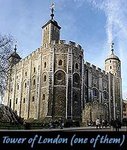Sometimes the simplest things are the hardest. Like now, when I am trying to access my Hotmail account from Cologne public library and it has taken me ten minutes to find the keystroke combination for @. Just try using the Internet without it! Even with a Roman keyboard, there are numerous ways of arranging the characters enough to confuse the foreigner.
I am enjoying a few days in Cologne and have so far seen the Chocolate Museum, the Sports Museum and the Dom (cathedral), the largest church in Germany. Among its numerous claims to fame is the golden reliquary containing the skulls of the Three Wise Men. Cologne was the target of the first Thousand Bomber raid in history in 1942. Actually, the Royal Air Force scraped up considerably less than 1,000 aircraft for that mission, but it looked good in the tabloid headlines of the time. As a result of that raid and numerous others, there was not much left of Cologne by the time peace came. But you would never know it today. The rebuilding of the city, like that of Berlin, is little short of miraculous.
As you might suspect from earlier postings, I always enjoy the quirky and unexpected aspects of any city and Cologne certainly has its share. The Chocolate Museum was founded by a local chocolate company owner and contains 3,000 years of the history of chocolate and the cocoa bean - everything from its origins in South and Central America to modern incarnations like the Mars bar, Kitkat and Toberlerone. A complete chocolate production line, a tropical hothouse nurturing the trees, chocolate animals, moulds, advertising, technical innovations, plenty of free samples - in short, a glorious afternoon for anyone with a sweet tooth.
The Sports and Olympic Museum next door is equally enthralling. It contains everything from Steffi Graf's 1991 Wimbledon trophy to Leni Riefenstall's 1938 epic Olympic documentary to Michael Schumacher's Grand Prix winning Renault. It does not duck the uglier aspects of German sporting history under the Nazis, but is curiously silent about the East German mass doping scandal. Some of the German Olympic medal winners gracing the walls are from the East German glory days of the 1970s and 1980s, about which an embarassed silence might be the only diplomatic recourse. Also at one end of a gallery, there was a bank of TVs showing sporting highlights from the last few decades, with the inevitable Chariots of Fire theme running in a continuous loop. Of course Chariots of Fire was set at the 1924 Paris Olympics - where Germany was banned as ongoing punishment for WW1. The Olympics have been political from the start, with one country or another being banned or trying to impose bans on some else.
Thursday, November 15, 2007
Subscribe to:
Comments (Atom)

